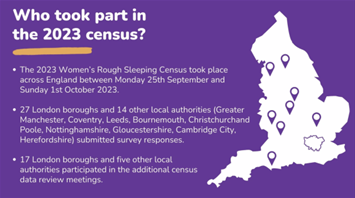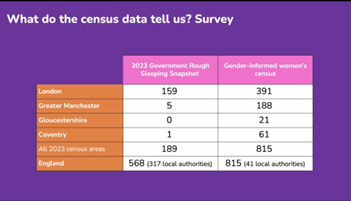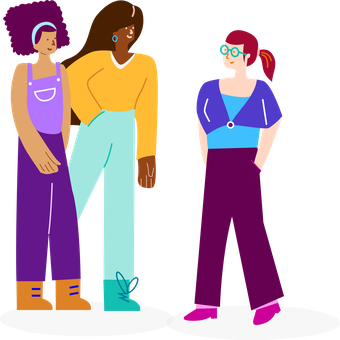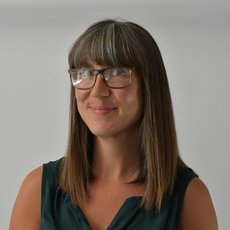Alex Smith reports from the webinar held to launch the latest report on women's rough sleeping.
Since the rough sleeping definition was established, there has been a growing body of evidence showing that women are under-represented. The Women’s Rough Sleeping census was established in 2022 in response to this. The Census is a true partnership approach, with a coalition of organisations creating a methodology shaped around the experiences and needs of women.
“Women’s rough sleeping is often hidden, transient and intermittent.” - Women’s Census report, 2022
The Department for Levelling-up, Housing and Communities (DLUHC) Annual Rough Sleeping Snapshot is a flagship of data collection which has been instrumental in securing funding for rough sleeping strategies. However, there is acknowledgement that the methodology is limited in capturing women’s needs.
In 2023, the Women's rough sleeping census took place in London and across 14 local authorities across England. This has been made possible through the work of Single Homelessness Project, Solace and London Councils, plus outreach teams, statutory services, VAWG services and many others. There is particular thanks to CGL for their analysis and reporting on the 2023 Census and to Isabel Langdale (Standing Together, formerly Homeless Link) for input to taking the Census to a national audience through the Women’s Housing Movement.

There were a total of 815 responses across 41 local authorities and the differences are stark, with the Census showing nine times as many women compared to the Snapshot:

The Census is already having an impact on practice, with some examples being shared:
- DLUHC have now written to all local authorities to confirm that the Verification Process should not be a barrier to accessing support.
- In Brent, outreach teams now conduct a gender informed outreach shift once per month.
- In Worthing, local partners have started to adopt case plans which do not depend on whether they are sleeping rough but on their support needs.
The full 2023 report and recommendations can be accessed below.
DLUHC encourage all areas to speak to their Rough Sleeping Initiative advisor for interest in the Women’s Rough Sleeping Census 2024!

